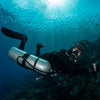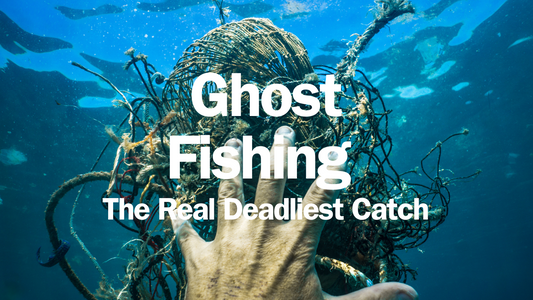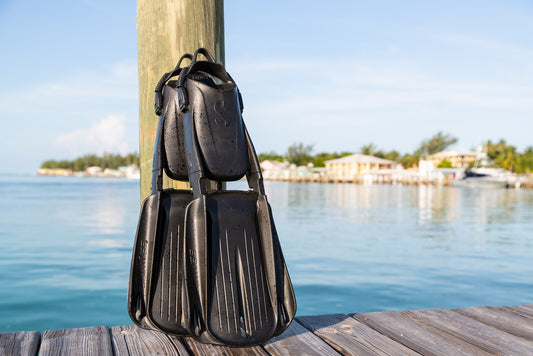Sir Dave has recently given us some strong messages that time is running out and we need to act now to save our precious world. Both BBC’s Seven Worlds, One Planet and the Netflix film A Life on Our Planet document the devastating changes Attenborough has seen throughout his career. Humanity has had a damaging impact on mother earth and now there is an urgency to protect her for generations to come.
Whether at home or abroad there are many ways that divers and snorkellers can contribute, even making conservation a regular part of your in-water activities. See our suggestions below:
- Support marine conservation charities
These charities produce some really informative materials to help you learn more about how to protect endangered marine life. Pledge your financial support annually or through a fundraising activity. Facebook now has fundraisers where you can choose a charity for your birthday and ask friends to donate. Better still, become an active member of a charity and volunteer with Sea Shepherd and the British Divers Marine Life Rescue for example. Many charities such as Bite-Back and the Marine Conservation Society are present at dive shows and other events where you can help out by manning their stands.
- Go on an expert-led trip
Knowledge is power. What better way to protect the animals you love than learning about them close up? Join an expert-led trip with like-minded individuals to monitor the behaviour of your favourite water-dwelling creatures. Trips often include talks by marine biologists, satellite tagging and suggestions on how you can continue to help protect marine life in future. We love the sound of the shark and manta ray trips with Marine Megafauna Foundation and Dive Worldwide’s Dive and Discover St Helena in the South Atlantic whale shark hotspot with expert Danny Copeland.
- Take part in a Dive Against Debris
This Project Aware program empowers scuba divers to remove marine debris from the ocean and report data on the types, quantities, and locations of materials collected. While we all try to collect rubbish from our waters and beaches where we can, data is important to help inform policy change. You can contact Project Aware for mesh bags and data cards to organise your own clean up dive OR ask your local dive centre to do one. On World Ocean Day or World Earth Day many dive centres across the world get involved. Check online to find out if there are any Aware activities happening near you.
- Be a Citizen Scientist
Did you know that the pattern on the underside of a manta ray is like a fingerprint, used to identify individuals? Or that every whale shark has a pattern behind the gills that is personal to that whale shark only? If you have old holiday snaps of these marine giants turf them out and upload to either Manta Matcher or Whaleshark.org. They will inform you if your photos are a match for previously sighted megafauna. These sightings are invaluable for tracking migration patterns, pregnancy and injury. You can also contribute to Turtle Watch, Egypt and Coral Watch. In the UK Sea Search map out various types of sea bed found in the near-shore zone around Britain and Ireland. They also record what lives in each area, establishing the richest sites for marine life, where there are problems and which sites need protection. So get monitoring!
- Engage with local communities
It is too easy to go on holiday and play the tourist, staying in a posh resort. Make your experience of the surrounding culture more than just enjoying the local food. Step outside and engage with the people. Buy local arts and crafts, eat at a local restaurant and enjoy an excursion with a local guide. This is eco-tourism and benefits the local economy. If you want a more authentic experience in the Maldives you can stay on a local island rather than a resort island; in Tahiti stay at a guest house rather than in a well known hotel; in Indonesia you can enjoy a homestay with a local family instead of in a resort. All these experiences ultimately keep tourism income within the community and not in corporate pockets. While we can never truly offset our carbon footprint by flying, these are other positive ways to give something back.
- Buy some dive kit from Mike’s Dive Store!
Here at Mike’s we sell a good range of eco-friendly products and really try to do our bit to reduce waste (see our sustainability page here) but what we are really proud of is our support of Sea-Changers. They are a small charity dedicated to raising money for coastal conservation initiatives. Since 2015 we have donated 1% of our profits to the charity raising over £16,000. Sea-Changers distributes the donated money to a range of projects such as direct marine clean up action, education and awareness-raising about marine conservation issues, species and habitat protection and conservation research. Steve Brown, MD at Mike’s Dive Store said: “The UK’s seas give Mike’s Dive Store’s customers a rich variety of opportunities to enjoy their sport. We are delighted to play our part in making sure there are healthy oceans and coastlines for future generations of divers to enjoy and learn from. We are proud to have reached this fundraising milestone.”





